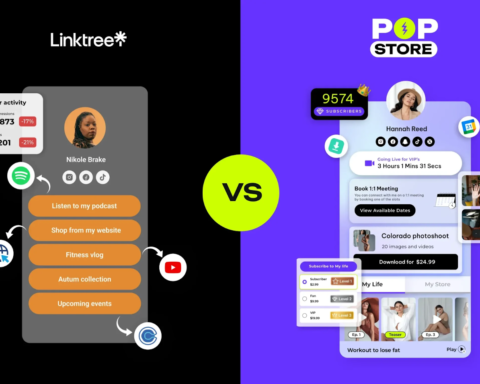Importance of Clear Expectations
Having clear expectations is essential to any project’s success. When everyone knows what is expected of them, it gets rid of uncertainty and lessens the possibility of conflict. Clear expectations help in aligning the team’s efforts toward a common goal. This shared understanding enhances collaboration and ensures that everyone is working in sync.
When members of a team are aware, they can collaborate more effectively if they know each other’s precise responsibilities. Often, virtual teams find leveraging virtual assistant services beneficial in defining and maintaining such expectations. These services can help in documenting roles, responsibilities, and deliverables, making it easier for teams to stay aligned and focused.
Well-defined expectations can significantly improve the performance and morale of a team. When expectations are unclear, it can lead to frustration, wasted effort, and missed deadlines. Clear expectations reduce ambiguity, increase accountability, and drive better project outcomes.
Effective Communication Strategies
Communication is vital in setting and maintaining clear expectations. Consistent and transparent communication ensures that everyone remains on the same page throughout the life of the project. It encourages an environment of transparency and trust where team members feel free to voice their concerns and thoughts.
- Regular Check-ins: Schedule frequent updates to track progress and address any concerns early. Regular check-ins help in identifying potential issues before they escalate, allowing for timely interventions.
- Document Everything: Keep thorough records of all decisions, changes, and milestones. During project reviews or audits, documentation may be a great resource since it acts as a point of reference.
- Open Feedback Channels: Encourage team members to voice concerns and suggestions. Open feedback channels create an inclusive environment where everyone feels heard and valued.
Effective communication strategies not only ensure that expectations are clear but also promote a collaborative and supportive team environment. They help in building strong team dynamics, where members respect each other’s opinions and work towards a common goal.
Tools for Setting Expectations
Several tools can assist in setting and managing expectations effectively. Project management software like Trello, Asana, or Jira provides platforms for tracking tasks, deadlines, and overall project progress. These tools provide a visual depiction of the project’s state, which facilitates management and monitoring.
These tools allow for transparent communication and provide a centralized place where all project-related information is stored. This ensures that all team members have access to the same information, reducing the possibility of misunderstanding. Features like task assignments, progress tracking, and deadline reminders help in maintaining clarity and accountability.
Using these tools also facilitates better planning and resource allocation. Teams can prioritize tasks, allocate resources efficiently, and modify plans as necessary to remain on course. Integrated communication features further enhance collaboration and keep everyone informed.
Establishing Realistic Deadlines
Another crucial aspect of project success is setting realistic deadlines. Deadlines that are too tight might cause fatigue and lower-quality work. To make sure that timeframes are realistic, it is crucial to include the whole team in the deadline-setting process. Collaboration in setting deadlines fosters a sense of ownership and commitment among team members.
According to a study by Project Times, involving team members in the planning phase can improve the accuracy of deadline estimates. It also increases team commitment to meeting deadlines. Realistic deadlines balance the project’s needs with the team’s capacity, promoting sustainable productivity.
Take into account variables, including work difficulty, resource availability, and possible hazards, while determining timelines. Divide more complex activities into smaller, deadline-drive milestones. This phased approach makes the project more manageable and provides opportunities for regular progress reviews.
Breaking Down Tasks
One tactic that helps keep expectations clear and fulfill deadlines is to divide big jobs into smaller, more manageable ones. When tasks are broken down, it’s easier to track progress and make adjustments as needed. Smaller tasks provide a clearer picture of the project’s trajectory and make it easier to identify any issues early on.
This approach also helps identify potential bottlenecks early on. By breaking tasks into smaller components, teams can address challenges incrementally rather than face them all at once. It allows for more precise resource allocation, better focus, and a greater sense of accomplishment as smaller milestones are achieved.
Additionally, breaking down tasks facilitates better communication and coordination. Team members can collaborate more effectively on specific tasks without feeling overwhelmed by the project’s overall complexity. This incremental approach promotes a steady and consistent workflow.
Dealing with Missed Deadlines
No matter how well a project is planned, deadlines can be avoided. The key is to handle them proactively. First, identify why the deadline was missed. Was it due to an unrealistic timeline, lack of resources, or unforeseen obstacles? Determining the underlying problem is essential to coming up with workable answers.
Once the root cause is identified, communicate transparently with your team and stakeholders. Discuss the steps needed to get back on track and adjust future deadlines if necessary. This approach not only keeps the project moving forward but also maintains trust and confidence. within the team. Transparent communication helps in minimizing the impact of missed deadlines and prevents similar issues in the future.
Implement corrective measures such as reallocating resources, revising timelines, or providing additional support to the team. Ensure that lessons learned from missed deadlines are documented and used to improve future planning. Maintaining a proactive and solution-oriented mindset is essential for overcoming setbacks.
Maintaining Flexibility
Flexibility is essential in project management. While clear expectations and deadlines are crucial, they are also essential to be adaptable. Projects often involve uncertainties and evolving requirements. Maintaining a flexible approach allows teams to pivot and adjust without losing momentum.
Adopt an agile mindset, where iterative planning and continuous improvement are prioritized. Motivate your group to welcome change and see it as an opportunity for growth and innovation. Regularly review and adjust project plans to respond effectively to new information and changing circumstances.
Balancing structure with flexibility ensures that your project can adapt to challenges while staying aligned with its goals. It promotes a resilient and dynamic project environment where teams can thrive despite uncertainties.
Stay tuned for the latest news and updates on essentialtribune








